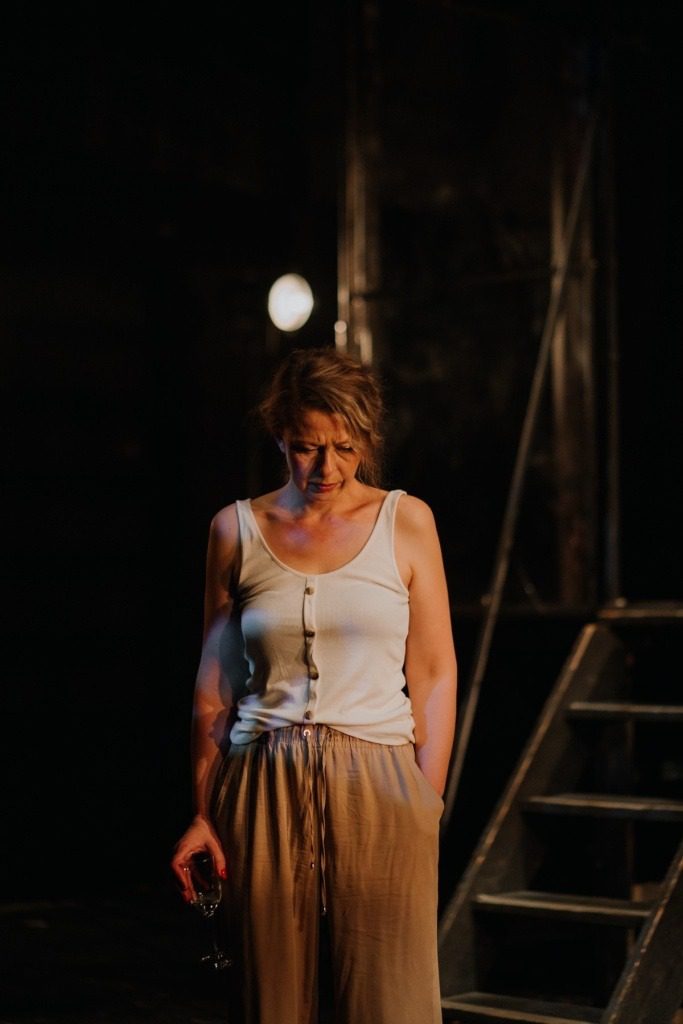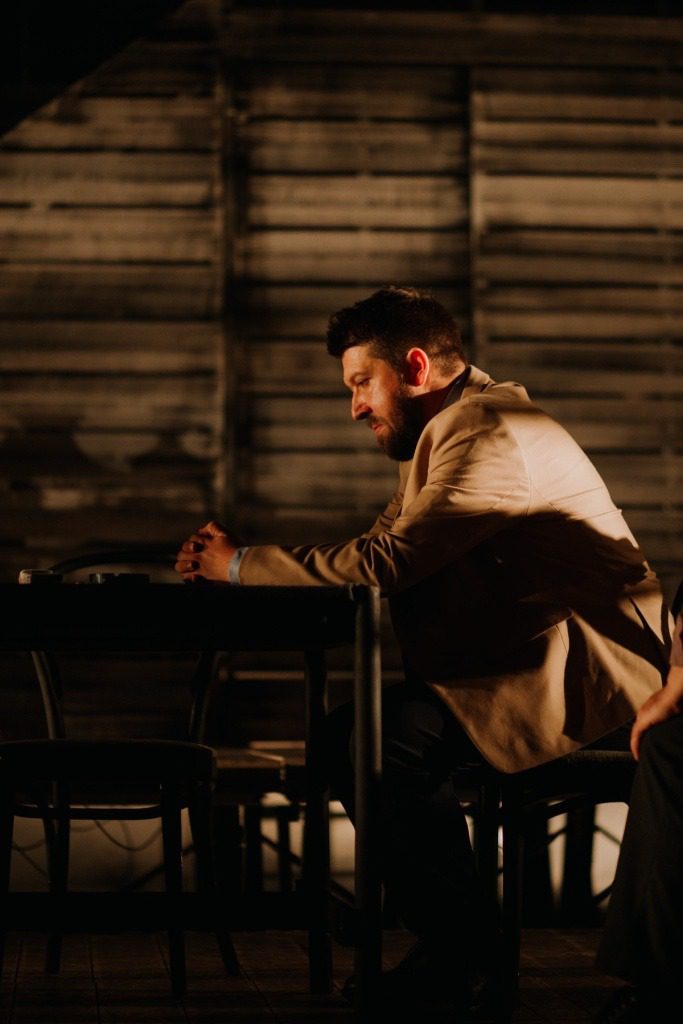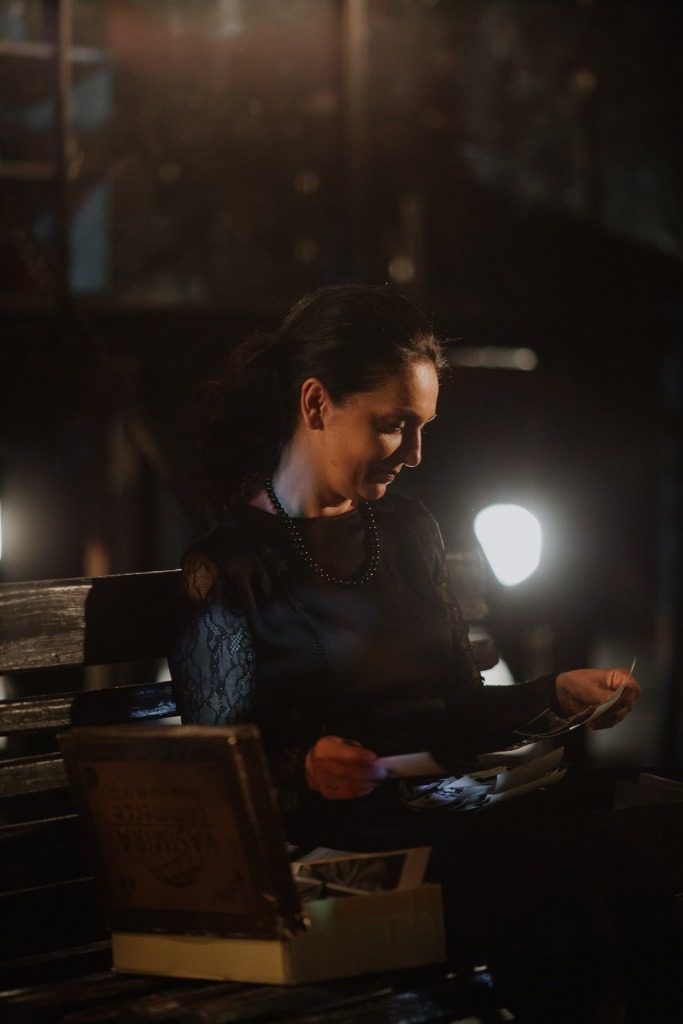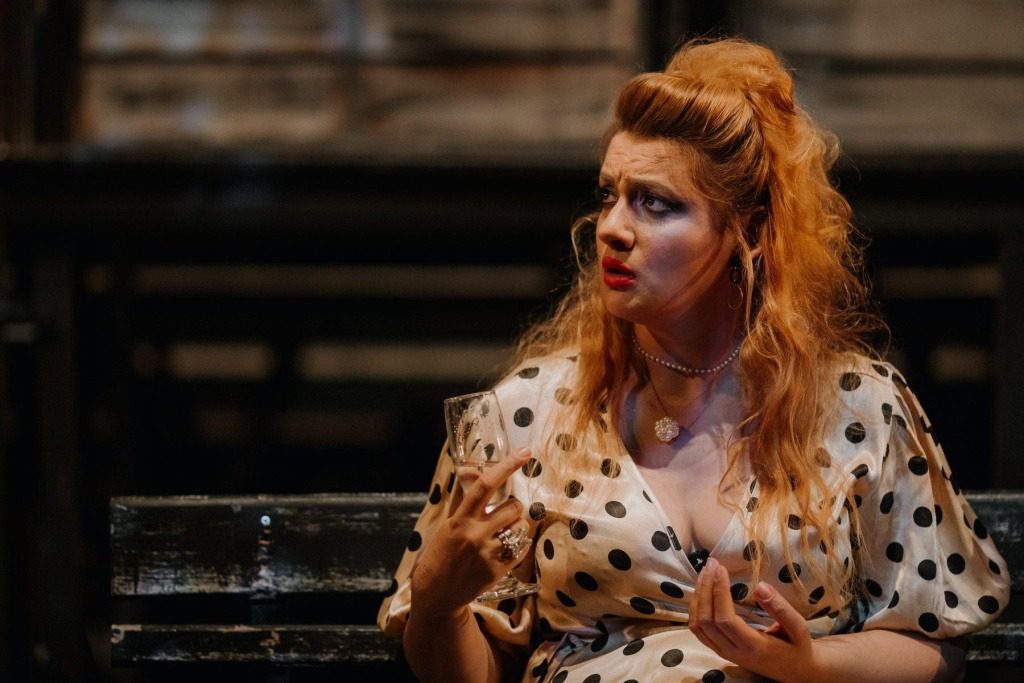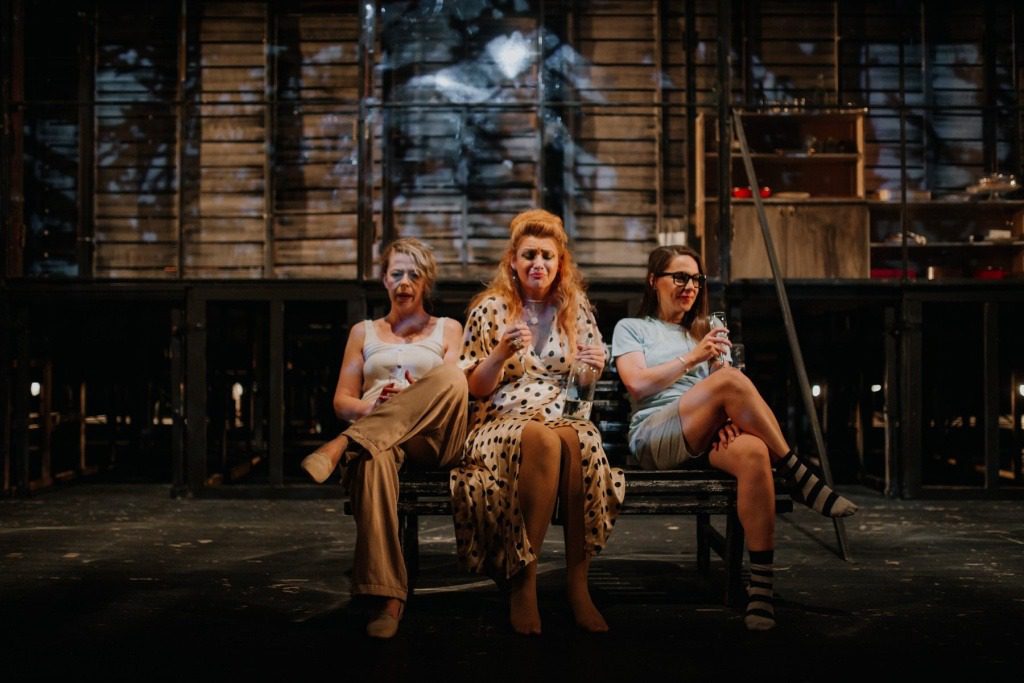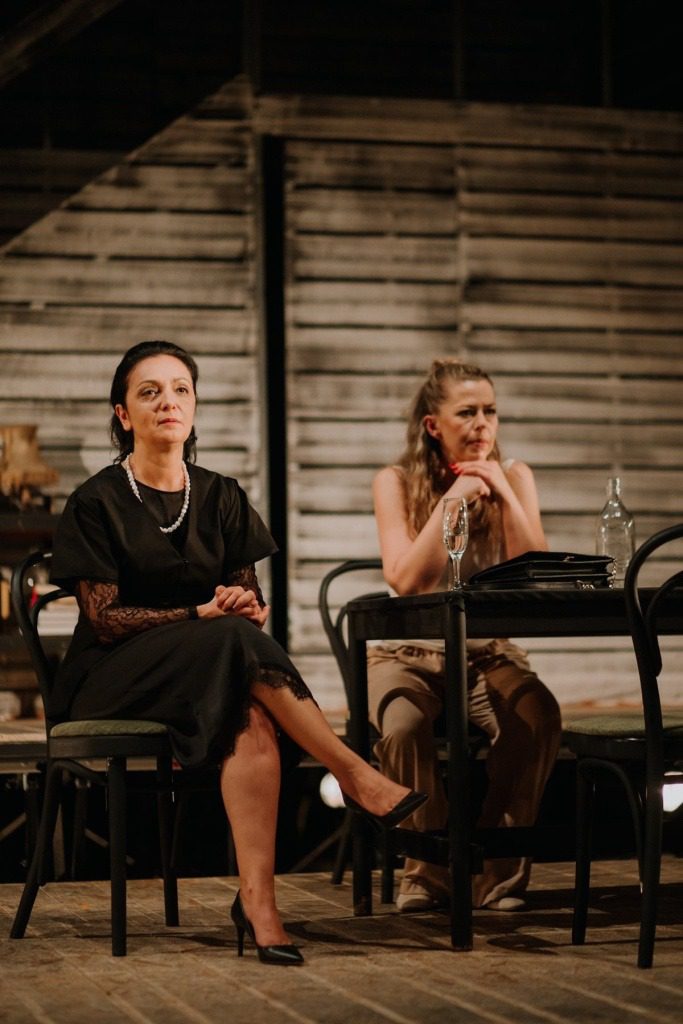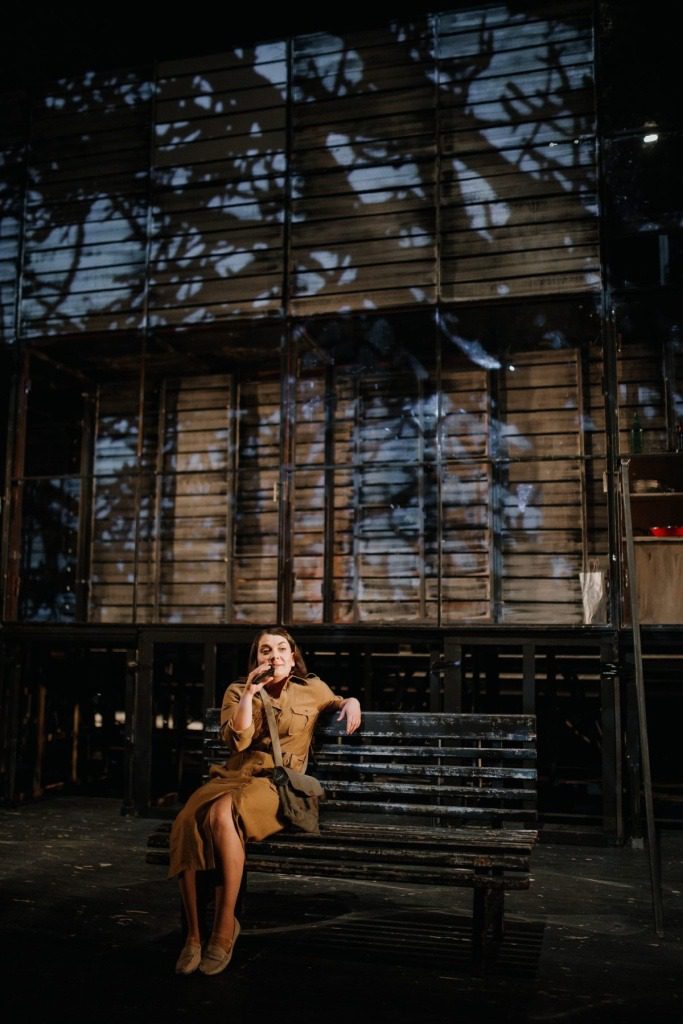AUGUST IN OSAGE COUNTY
Translation: Olivera Pavlovic
Director: Dragana Milosevski – Popova
Playwright: Biljana Krajchevska
Scenographer: Valentin Svetozarev
Costume designer: Andrej Papaz Gjorgievski
Composer: Marian Necak
Assistant Director: Jovan Ristovski
Light-master: Goran Petrovski
Tone-master: Aleksandar Dimovski
Videographer: Vladimir Perelovski
Inspector: Dimitar Mihajlovski
Caper: Gordana Mihajlovska
Makeup artist: Sasho Martinovski
Photographer: Alexander Bunevski
Premiere: 30.07.2019
Playing:
BEVERLY WESTON – Boris Chorevski
VIOLET WESTON – Elena Moshe
BARBARA FORDHAM – Juliana Mirchevska
BILL FORDHAM – Peter Gorko
JEAN FORDHAM – Angela Dimitrovska
Ivy Weston – Victoria Stepanovaska – Jankulovska
KAREN WESTON – Katerina Anevska- Drangovska
MATTIE FAYE AIKEN – Valentina Gramosli
CHARLIE AIKEN – Petar Mircevski
LITTLE CHARLES AIKEN – Marjan Gjorgjievski
JONA MONEVATA – Marija Stefanovska
STEVE HEIDEBRECHT – Nikolce Projchevski
SHERIFF DION GILBEAU – Vasko Mavrovski
"The child comes home and the parents embrace it with their tentacles. The aged man or woman, all the same, they have nothing to say to the child. The only thing they want is for the child to sit in a chair for a few hours, and then lie down to sleep under the same roof with them. That's not love. I'm not saying love doesn't exist. Only, I am pointing to something that is different from love, but it is sometimes subsumed under the same term. It's just something in the human blood. Some kind of blood lust, and that is human destiny. It distinguishes man from happy speechless creatures. When you are born, your mother and father lose a part of themselves and then kill each other, trying to get that back, and that part, that's you. They know they can't get all of that back, but they will try to tear off as big a piece of your flesh as possible. And the good side of family gatherings, family lunches under the maple canopy, are the same as diving into an octopus tank. “
Robert Pen Warren, All the King's Men
For Augustus
The play Augustus(original: August in Osage County by American writer Tracy Letts, 2007Mr.) is a black comedy that is as down-to-earth as it is, sarcastic and funny, it is just as sad because it shows us very clearly how very perverted man can be by nature and how difficult it is, if not impossible, to change that deep-seated habit of self-destruction in his nature if he tried to free himself from the past.
Exactly, this is a story about people who under the guise of family life, partly out of fear or panic, but also because of some twisted love they have to destroy themselves. The more they reveal about themselves to each other, the more they realize they don't know each other, that they are strangers. The drama begins right after their meeting.
An occasion to reunite in the house, which is the guardian of their broken lives and the truth that lies ahead, is the disappearance, that is, the suicide of the head of the family (the patriarch), Beverly, bitter poet and alcoholic. Arriving at the funeral and spending the night is a veritable menagerie of grief (the misery): family members and guests, each with their own secret, are met and tortured by the matriarch of the family – Violet, who wants to dominate, and dies of throat cancer.
The picture is like this: The mother staggered up the stairs swallowing a bunch of different pills . In the dining room, again, a woman confesses about her own affair. The three sisters in modern Chekhov styled despair trapped in the trap of their lives can neither escape from their mother's shadow nor even leave the dark house. An underage girl is about to be abused. Portraits of powerless male characters are walking around. Up in the attic, a Native American woman reads TS Eliot's Hollow Men. Yes, all these are hollow people. Hollow people who fade and disappear just like the state of the spirit of people today , in this consumerist culture in which one actively participates; a routine of life cited by the ritualistic consumerism that creates a monster and parks it in the parking lot whose end product is despair and psychoticism. This family in crisis symbolizes the collapse of American idealism, that is, of idealism in general.
Now, is dysfunctionality the new order of a consumerist society? Or the re-creation of new interpersonal relationships is announced?
There are no easy answers or superficial redemptions , just questions, bursts of insight that keep the drama going for a moment.
Biljana Krajchevska, playwright





